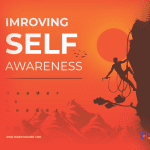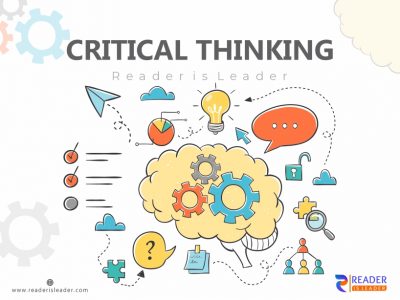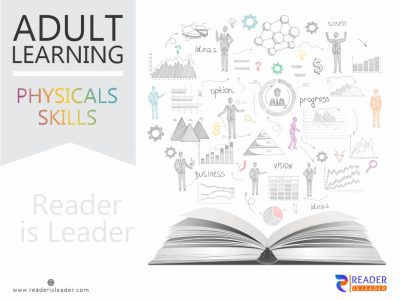Ten Soft
Skills You Need
Soft Skills are those Skills which allow us to effectively work with others. No matter what your position, organization, or industry, you work with people.
Note: This course is available in Urdu language also Click here

After completion of this course, the candidate will be able to cover the following..
For Course Benefits, please watch this Video or Read below….
[video_popup url=”https://www.youtube.com/watch?v=JvSVknkkCh8″ text=”” title=”” auto=”” n=”1″ p=”” wrap=”1″ img=”https://courses.readerisleader.com/wp-content/uploads/2023/05/hnhjk.png”]
- Enhanced Communication:
An online course on improving soft skills focuses on enhancing communication abilities. You’ll learn effective verbal and written communication techniques, active listening, and the art of conveying messages clearly and concisely.
- Leadership Development:
The course helps you develop leadership skills. You’ll learn how to inspire and motivate others, delegate tasks, and make sound decisions, empowering you to take on leadership roles and lead teams effectively.
- Collaboration and Teamwork:
Improving soft skills equips you with the ability to collaborate and work effectively in teams. You’ll learn how to build trust, resolve conflicts, and leverage the strengths of team members, enhancing teamwork and achieving common goals.
- Emotional Intelligence:
The course emphasizes the development of emotional intelligence. You’ll learn to understand and manage your emotions, empathize with others, and navigate interpersonal relationships with empathy and sensitivity.
- Adaptability and Resilience:
Soft skills training helps you become more adaptable and resilient in the face of challenges. You’ll learn to embrace change, remain flexible, and bounce back from setbacks, enabling you to thrive in dynamic and uncertain environments.
- Problem-Solving and Critical Thinking:
The course enhances problem-solving and critical thinking skills. You’ll learn to analyze situations, evaluate options, and make informed decisions, enabling you to identify and solve complex problems effectively.
- Time Management:
Improving soft skills includes developing effective time management techniques. You’ll learn to prioritize tasks, set goals, and manage your time efficiently, increasing productivity and reducing stress.
- Conflict Resolution:
The course provides strategies for conflict resolution. You’ll learn techniques to manage and resolve conflicts constructively, fostering positive relationships and maintaining a harmonious work environment.
- Creativity and Innovation:
Soft skills training encourages creativity and innovation. You’ll learn techniques to think outside the box, generate new ideas, and embrace a mindset of innovation, enabling you to contribute fresh perspectives and find innovative solutions.
- Networking and Relationship Building:
Improving soft skills includes networking and relationship-building skills. You’ll learn techniques to connect with others, build professional relationships, and leverage your network for personal and professional growth.
- Presentation Skills:
The course helps you develop effective presentation skills. You’ll learn how to deliver engaging presentations, use visual aids effectively, and communicate your ideas with confidence and clarity.
- Confidence and Self-Assertiveness:
Soft skills training enhances confidence and self-assertiveness. You’ll learn techniques to overcome self-doubt, express yourself assertively, and project confidence in various professional and personal situations.
- Customer Service Excellence:
The course focuses on improving customer service skills. You’ll learn techniques to deliver exceptional customer experiences, handle challenging situations, and build long-lasting customer relationships.
- Negotiation and Influencing Skills:
Improving soft skills equips you with negotiation and influencing skills. You’ll learn techniques to negotiate effectively, persuade others, and reach mutually beneficial agreements.
- Networking Opportunities:
Online courses provide networking opportunities. Engaging with other learners, participating in discussions, and accessing online forums allows you to expand your network, share experiences, and potentially form valuable professional connections.
- Increased Self-Awareness:
Soft skills training promotes self-awareness. You’ll gain insights into your strengths, weaknesses, and areas for improvement, enabling you to develop a deeper understanding of yourself and make intentional personal and professional development choices.
- Professionalism and Ethics:
The course emphasizes professionalism and ethical behavior. You’ll learn about workplace etiquette, integrity, and ethical decision-making, ensuring that you conduct yourself with professionalism and uphold ethical standards in your work.
- Cross-Cultural Competence:
Improving soft skills includes developing cross-cultural competence. You’ll learn to appreciate and respect cultural differences, adapt your communication style, and work effectively in diverse and multicultural environments.
- Stress Management:
Soft skills training provides techniques for stress management. You’ll learn strategies to cope with stress, maintain work-life balance, and promote your well-being in demanding professional environments.
- Overall Personal and Professional Growth:
Improving soft skills leads to overall personal and professional growth. By enhancing your communication, leadership, problem-solving, and interpersonal skills, you become a well-rounded individual capable of navigating and succeeding in various professional and personal contexts.
Ten Soft Skills You Need Modules
In this course, you will get 12 Modules which are describing all aspects greatly
- Module One: Getting Started
- Workshop Objectives
- Module Two: What Are Soft Skills?
- Definition of Soft Skills
- Empathy and the Emotional Intelligence Quotient
- Professionalism
- Learned vs. Inborn Traits
- Case Study
- Module Three: Communication
- Ways We Communicate
- Improving Nonverbal Communication
- Listening
- Openness and Honesty
- Case Study
- Module Four: Teamwork
- Identifying Capabilities
- Get Into Your Role
- Learn the Whole Process
- The Power of Flow
- Case Study
- Module Five: Problem-Solving
- Define the Problem
- Generate Alternative Solutions
- Evaluate the Plans
- Implementation and Re-Evaluation
- Case Study
- Module Six: Time Management
- The Art of Scheduling
- Prioritizing
- Managing Distractions
- The Multitasking Myth
- Case Study
- Module Seven: Attitude And Work Ethic
- What Are You Working For?
- Caring for Others vs Caring for Self
- Building Trust
- Work Is Its Own Reward
- Case Study
- Module Eight: Adaptability/Flexibility
- Getting Over the Good Old Days Syndrome
- Changing to Manage Process
- Changing to Manage People
- Showing You’re Worth Your Weight in Adaptability
- Case Study
- Module Nine: Self-Confidence (Owning It)
- Confident Traits
- Self-Questionnaire
- Surefire Self-Confidence Building Tactics
- Build Up Others
- Case Study
- Module Ten: Ability To Learn
- Wow, You Mean I’m Not Perfect?
- Listen with an Open Mind
- Analyze and Learn
- Clear the Air and Don’t Hold Any Grudges
- Case Study
- Module Eleven: Networking
- Redefine Need
- Identifying Others’ Interests
- Reach Out
- When to Back Off
- Case Study
- Module Twelve: Wrapping Up
Be Creative with Quizes
Each Module is finishing with its quiz & hence you will get to review your Modules in the form of 100 questions.
- Module Two Review Questions
- Which of the following are true of soft skills?
- The technical and knowledge skills we bring to our jobs are known as which of the following?
- The ability to identify with another’s feelings is known as which of the following?
- Which of the following are components of emotional intelligence?
- The ability to recognize our feelings and express them appropriately is known as which of the following?
- Professionalism does NOT require which of the following?
- Which of the following is NOT true of soft skills?
- Which of the following is the best way to develop soft skills?
- What best describes Dee?
- What did demonstrating empathy help increase?
- Module Three Review Questions
- Communication with written or spoken words is known as which of the following?
- Humans communicate in which of the following ways?
- Approximately how much of our communication is nonverbal?
- Which of the following communicates that a person is listening?
- Rephrasing and repeating back to a speaker what you understand her to have said is known as which of the following?
- A listening technique in which the listener stays focused on the present and reflects back what the speaker has said is known as which of the following?
- Which of the following is true of open and honest communication?
- Which of the following is NOT true of open and honest communication
- What did Austin’s nonverbal communication convey?
- Who suggested that Austin improve his communication?
- Module Four Review Questions
- Which should be the first step in forming a team?
- What does identifying capabilities do?
- Which of the following helps you step into your role?
- What does stepping into your role do?
- Why is learning the whole process important?
- What should a team member learn when working on a team?
- A state in which we are totally immersed in a project is known as which of the following?
- You should minimize which of the following to achieve flow?
- Who advised Coleen?
- How did Coleen prefer to work?
- Module Five Review Questions
- Which should be your first step in problem solving?
- Which of the following is true of defining the problem?
- What should you generate?
- Which is true of generating alternative solutions?
- How often should plans be re-evaluated?
- What does evaluating plans do?
- What should be considered when evaluating plans?
- Why should plans be re-evaluated?
- How did Enrique view himself?
- What did Enrique fail to do at first?
- Module Six Review Questions
- Making which type of tasks should you schedule?
- What can help you better schedule tasks?
- The tasks or projects that are most important are known as ______________.
- What happens when we fail to set priorities?
- What should you do with distractions?
- What does managing distractions help do?
- Which is NOT true of multitasking?
- Compared to mono-tasking, multitasking takes ___________________.
- How did Cliff usually work?
- What technique did Shawna use to be most productive?
- Module Seven Review Questions
- What type of attitude should you cultivate?
- A focus on which type of goals helps to build relationships?
- All but which of the following are ways to demonstrate that you care for others?
- Which of the following is NOT true of self-care?
- All but which of the following helps build trust?
- What does building trust help others do?
- How should you view work?
- All but which of the following are signs that you see work as its own reward?
- How did Yuki view work?
- Who encouraged Yuki to look at work differently?
- Module Eight Review Questions
- What do most of us do with the past?
- How can you overcome the good old days syndrome?
- What is true of changing to manage process?
- Which of the following may require us to change to manage process?
- What is true of changing to manage people?
- Which is true of changing to manage people
- What should you seek to demonstrate?
- Which of the following shows adaptability?
- What was Martin lacking?
- Who suggested Martin be more adaptable with his direct reports?
- Module Nine Review Questions
- Which of the following are traits of self-confident people?
- Self-confident people are not afraid to be what?
- Why should you use a self-confidence questionnaire?
- Who should administer the confidence questionnaire?
- Which of the following builds confidence?
- Which of the following helps build confidence?
- Self-confident people do NOT do which of these?
- Which of the following is a way to build another person up?
- How was Twain unusual?
- Who related the story about Twain?
- Module Ten Review Questions
- What should you focus on when receiving feedback?
- Feedback is offered in the spirit of ________________.
- What type of listening should you practice when getting criticism?
- You should be sure to do which of the following after getting feedback?
- What should you do after getting feedback?
- It is ok to do which of the following when you receive feedback?
- How can you clear the air after a feedback session?
- What should you never do after feedback?
- How did Delia approach feedback?
- What advice did her manager give?
- Module Eleven Review Questions
- What should you define when networking?
- What should you think about when you network?
- What should you identify when networking?
- What should you focus on when identifying others’ interests?
- What should you do when networking?
- Which of the following is a way of reaching out?
- What should you do when a person is not responding to your networking efforts?
- Which is a sign that you should back off?
- What did Gwen do to network?
- What did Kwame recommend for Gwen?

- What is the requirement for this course?
The course is open to anyone who is interested in learning more about the subject matter, and there are no specific entry requirements to enroll.
- What much Time I need to Spend for completion of this course?
The course is divided into different modules, with an average study time ranging from 20 to 90 minutes per module as per your convenience. While you have the flexibility to allocate your preferred amount of time to each module, after buying you will have lifetime access to the course so you can log in and out of the course as per your schedule.
- When and Where I can Study this Course?
You can study this course at any time and anywhere of your choice, you have the convenience of logging in and out of the web-based course as often as you need. The course is compatible with all devices, including computers, tablets, and smartphones, allowing you to study even while on the go.
- How I can Pay for this Couse?
To make a payment for this course, you have the option to use several payment methods including Visa, MasterCard, and PayPal account. The website employs the latest SSL encryption technology to ensure that your payment details are kept safe and secure. All payments are processed securely by PayPal, providing an added layer of protection for your peace of mind.
- How soon I can have access to the course material?
You will have access to the course immediately after you make the payment. You will receive email confirmation of payment at the same time with full access to the course material.
- Can I earn a Certificate at the end of the course?
That’s Right! At the completion of the course, we will earn a Professional Certificate that can be a valuable addition to your career and personal achievements. This certificate will serve as evidence of the knowledge and skills you have gained through the course, and can help you demonstrate your expertise to current or potential employers.
- What is the validity of the Certificate?
Certificate is your achievement, which will remain with you forever. It doesn’t have any expiry or need any renewal. Enjoy the Course and Good Luck.
Downloads
Get life-time access for 40 Well Documented Downloadable Pages of this course
This Course Includes….
24/7 Student Support
End of Course Certification
Lifetime Access
Compatible with Modern Devices
You can have all of our courses for $99 Per Year, Click Here
Related Courses Below..
What Are Soft Skills?
Simply put, Soft Skills are the personal attributes that allow us to effectively relate to others. These Skills enhance our personal interactions and lead to greater job performance and satisfaction. Unlike hard skills, which are the technical and knowledge skill set we bring to our work, Soft Skills are interpersonal and can be applied in a broad array of situations.
Course Objectives
At the end of this course workshop, participants would be able to:
- Discuss how Soft Skills are important to success in the workplace
- Understand the 10 key Soft Skills everyone should have
- Use Soft Skills to relate more effectively to others in the workplace
- Understand how to use Soft Skills to communicate, problem-solve, and resolve conflict
- Apply Soft Skills to specific situations
Applying these Soft Skills helps you build stronger work relationships, work more productively, and maximize your career prospects.
Often, we place the focus of our career development efforts on hard skills – technology skills, knowledge, and other skills that specifically relate to our ability to get work-related tasks done. This means we neglect to develop our soft skills. However, Soft Skills are directly transferrable to any job, organization, or industry. As a result, they are an investment worth making.
Emotional Intelligence Quotient (EQI)
The EQI is a measure of your ability to exercise soft skills as well as to recognize and manage our feelings so that they are expressed appropriately. Learn how to exercising emotional intelligence so that it helps you to create harmonious, productive relationships. Some of key components to Emotional Intelligence:
Self Awareness
The ability to recognize our own feelings and motivations
Social Awareness
Our ability to recognize the feelings and needs of others, and the norms of a given situation
Relationship Management
Our ability to relate effectively to others
Why You Need To Enroll Into This Course?
Featured Soft Skills
Communication
Teamwork
Time Management
Attitude & Work Ethic
Adaptability/Flexibility
Self-Confidence
Networking
And Many More
Having the technical skills and knowledge to successfully execute your job duties is only one part of being the best you can be in the workplace. In addition to these “hard” Skills, you must have “Soft” Skills for ultimate betterment.


















